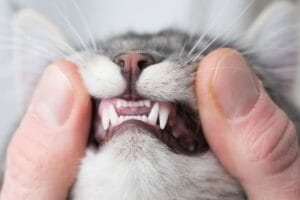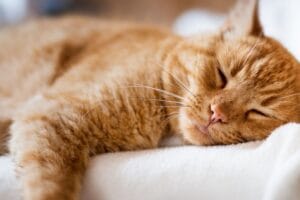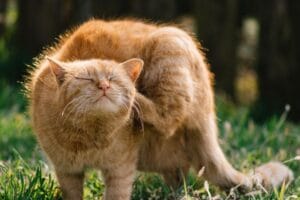Can Cats Eat Lamb Heart – Everything You Need to Know
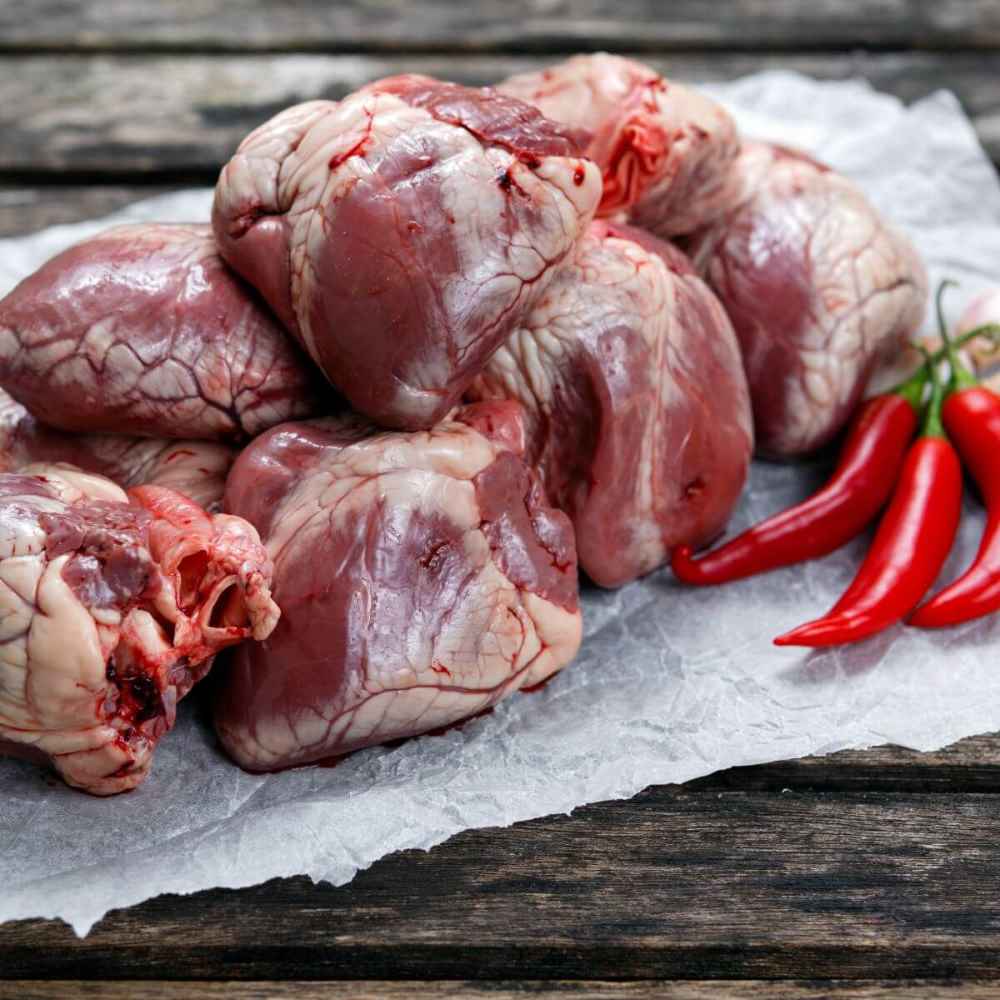
When it comes to our pet’s diets, ensuring they receive proper nutrition is of utmost importance. As cat owners, we often wonder about the safety and suitability of certain foods for our beloved pets. One such question that frequently arises is, “Can cats eat lamb heart?“.
In this comprehensive guide, we will explore the nutritional profile of lamb heart, its potential benefits for feline health, and whether it is safe to incorporate into their diet. Understanding the significance of a cat’s natural diet and their carnivorous behavior will provide valuable insights into why organ meats like lamb heart can be beneficial.
- Nutritional Benefits of Lamb Heart
- Cats' Natural Diet and Carnivorous Behavior
- Is it Safe For Cats to Eat Lamb Heart?
- Lamb Heart For Cats: Cooked or Raw?
- Cooking Lamb Heart For Cats: Tips and Ideas
- Lamb Heart and Specific Health Conditions
- Cat-Friendly Lamb Heart Recipes
- Alternatives to Lamb Heart
- Frequently Asked Questions (FAQs)
- Conclusion
Nutritional Benefits of Lamb Heart
There are many nutritional benefits of feeding your cat, lamb heart. It boasts an impressive nutritional profile, making it a valuable addition to a cat’s diet. Rich in animal-based proteins, it provides the necessary building blocks for muscle maintenance, growth, and repair. Cats are obligate carnivores, and the protein content in lamb heart aligns perfectly with their biological needs.
Taurine, an essential amino acid abundant in lamb heart, is crucial for cats’ heart health, vision, and reproductive well-being. Additionally, lamb heart is a fantastic source of vitamin B12, promoting nerve function and red blood cell production. Iron in lamb heart contributes to the formation of hemoglobin, ensuring proper oxygen transport in the blood, while zinc supports immune function and skin health.
Cats’ Natural Diet and Carnivorous Behavior
Cats have evolved as obligate carnivores, meaning their bodies are designed to thrive on a diet consisting mainly of animal-based proteins. In the wild, cats’ natural diet revolves around hunting and consuming prey animals, where they relish nutrient-rich organ meats like hearts. This dietary behavior has been ingrained in their genetic makeup over thousands of years, shaping their nutritional requirements and metabolic processes.
Acknowledging their carnivorous nature helps us understand the significance of including organ meats, such as lamb heart, in their diet. Organ meats are densely packed with essential nutrients that cater to a cat’s biological needs. Lamb heart, in particular, provides vital amino acids, vitamins, and minerals that support their overall health and well-being.
Is it Safe For Cats to Eat Lamb Heart?

When it comes to introducing new foods into a cat’s diet, safety is of utmost importance. While lamb heart offers valuable nutrients, it’s essential to proceed with caution and adhere to responsible feeding practices. Introducing any new food, including lamb heart, should be done gradually to allow your cat’s digestive system to adjust.
In short, the answer is Yes. Cats can eat lamb heart and it is perfectly safe for them to do so.
However, consulting with a veterinarian is recommended before incorporating lamb heart into your cat’s diet. A veterinarian can assess your cat’s health status, dietary needs, and potential sensitivities or allergies. They can provide personalized guidance to ensure that lamb heart aligns with your cat’s overall health and complements their existing diet.
Being vigilant about any adverse reactions is vital. Some cats may not tolerate lamb heart or may have specific dietary sensitivities. Watch for signs of digestive upset, allergies, or any other unusual behavior, and adjust accordingly if needed.
By following these precautions and seeking professional advice, you can safely introduce lamb heart to your cat’s diet, providing them with essential nutrients and enriching their meals in a responsible manner.
Lamb Heart For Cats: Cooked or Raw?
The question of whether to feed cats cooked or raw lamb heart is a topic that sparks much debate among pet owners. Each approach comes with its set of advantages and potential concerns.
Advocates of raw feeding believe that it preserves the natural nutrients present in the lamb heart, which may contribute to a more biologically appropriate diet for cats.
On the other hand, those in favor of cooked food emphasize the importance of food safety, as cooking can help eliminate potential harmful bacteria that might be present in raw meat.
Regardless of your chosen approach, it is essential to handle raw meat with care to prevent any cross-contamination or foodborne illnesses. Cooking lamb heart thoroughly or properly handling raw meat can ensure your cat’s safety and well-being. By collaborating with a veterinarian and adopting responsible food handling practices, you can confidently incorporate lamb heart into your cat’s diet, providing them with valuable nutrients while prioritizing their health.
Therefore, we recommend that you cook lamb hearts for your cat before feeding it to them. This way you can rest assured that what you are feeding your cat isn’t dangerous for their health.
Cooking Lamb Heart For Cats: Tips and Ideas
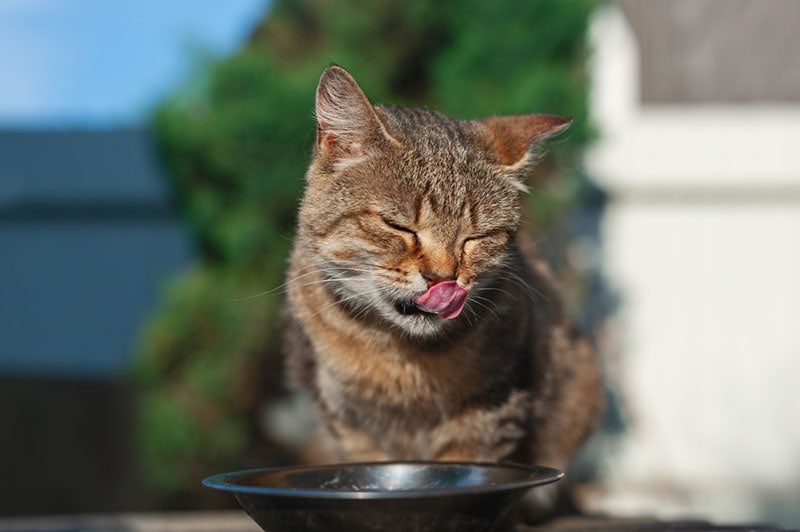
Cooking lamb heart for cats requires careful attention to ensure the meal remains safe and nutritious. Here are some tips that will help you when cooking lamb heart for cats:
- Firstly, source high-quality, fresh lamb heart from reputable suppliers.
- Avoid using seasonings, spices, or additives that could be harmful to your cat’s health.
- Thoroughly wash the lamb heart before cooking to remove potential contaminants.
- Consider lightly searing or boiling the lamb heart to maintain its nutritional value.
- Ensure the meat is cooked thoroughly to eliminate any harmful bacteria.
- Allow the cooked lamb heart to cool before serving it to your cat.
- Cut the lamb heart into small, manageable pieces for easy consumption.
- Introduce cooked lamb heart gradually into your cat’s diet to monitor their tolerance and acceptance.
- Observe your cat’s reaction to the new food and make adjustments as needed to ensure they enjoy a safe and nutritious meal.
Lamb Heart and Specific Health Conditions
Lamb heart can play a crucial role in therapeutic diets for cats with specific health conditions, particularly those related to the heart and blood health. For instance, cats suffering from heart disease may benefit from the rich source of taurine found in lamb heart. Taurine is an amino acid essential for maintaining cardiac function and preventing certain heart-related issues.
Additionally, cats with anemia, a condition characterized by a low red blood cell count, can benefit from the iron content in lamb heart. Iron is essential for the production of hemoglobin, which carries oxygen in the blood.
However, it is essential to emphasize that any dietary modifications should be made in consultation with a veterinarian. Each cat’s health condition is unique, and a veterinarian can assess the cat’s specific needs, determine the appropriate amount of lamb heart to include in their diet, and ensure that it complements their existing treatment plan.
Always follow the veterinarian’s guidance regarding the use of lamb heart as part of a therapeutic diet, as they will monitor your cat’s progress and make any necessary adjustments to support their specific health needs. With proper veterinary oversight, lamb heart can be a valuable addition to the diet of cats with certain health conditions, contributing to their overall well-being and improving their quality of life.
Cat-Friendly Lamb Heart Recipes
For cat owners who relish preparing homemade meals for their furry friends, introducing lamb heart into their culinary repertoire opens up a world of delectable possibilities. Crafting cat-friendly lamb heart recipes not only adds variety to their diet but also ensures they savor a nutritious and flavorful culinary experience.
- Lamb Heart Treats: Create delectable cat treats by thinly slicing and dehydrating lamb heart. These crispy delights are not only tasty but also rich in essential nutrients, making them a perfect reward for your cat’s good behavior.
- Lamb Heart Stew: Combine cooked lamb heart with other cat-safe ingredients, such as carrots, peas, and pumpkin, to prepare a hearty and nutritious stew. Slow-cooking this savory medley allows flavors to meld, resulting in a sumptuous meal your cat will adore.
- Lamb Heart Pâté: Blend cooked lamb heart with a splash of chicken broth to create a smooth and velvety pâté. Spread this delectable concoction on a cat-safe biscuit for an elegant treat that will surely delight your feline companion.
While homemade recipes can be a culinary adventure, cat owners seeking convenience without compromising nutrition need not worry. Several commercial cat food options containing lamb heart are readily available. Opt for reputable brands that prioritize quality ingredients, ensuring your cat receives the nutritional benefits of lamb heart in a balanced and convenient manner.
By exploring these cat-friendly lamb heart recipes and considering commercial options, you can provide your feline friend with a menu that satisfies their taste buds while nourishing their body. Always remember to introduce new recipes gradually and observe your cat’s response, tailoring their diet to suit their preferences and dietary needs. With love and creativity, lamb heart can elevate mealtime to a delightful and healthful experience for your cherished feline companion.
Alternatives to Lamb Heart
When considering alternatives to lamb heart for your feline companion, there are several nutritious options to explore:
- Chicken Heart: Similar to lamb heart, chicken heart is a nutrient-dense organ meat that cats often enjoy. It is a great source of protein and essential nutrients, contributing to their overall health.
- Raw Chicken: Raw chicken can be offered as part of a raw food diet for cats. However, it is crucial to handle raw meat with care to avoid any potential risks associated with bacterial contamination.
- Ground Beef: Ground beef is a rich source of animal-based protein that can be cooked and incorporated into your cat’s meals. It adds variety to their diet and provides essential nutrients for their well-being.
- Beef Liver: Beef liver is another organ meat that cats find appetizing. It is packed with vitamins and minerals, including vitamin A and iron, contributing to a balanced diet for your feline friend.
When introducing any new food into your cat’s diet, including these alternatives, always do so gradually and observe their response. Consulting with a veterinarian ensures you make informed decisions that cater to your cat’s individual dietary requirements and preferences.
Frequently Asked Questions (FAQs)
Feeding lamb hearts to cats can raise various questions. Here, we address some of the most common FAQs to remove any further doubts you may have on this topic:
Q. Can I feed my cat lamb heart every day?
Feeding lamb heart every day is not recommended, as moderation is essential in a cat’s diet. While lamb heart offers valuable nutrients, it should be part of a balanced meal plan that includes other protein sources, vitamins, and minerals. Consult your veterinarian to determine the appropriate frequency based on your cat’s individual needs.
Q. Is raw lamb heart safe for cats?
Feeding raw lamb heart to cats is a controversial topic. While some advocate for a raw food diet, others stress food safety concerns. Raw meat carries the risk of bacterial contamination, which can be harmful to cats and their owners. Cooking lamb heart thoroughly can eliminate these risks while still preserving its nutritional benefits.
Q. Can kittens eat lamb heart?
Q. Can cats with heart conditions eat lamb heart?
Lamb heart’s high taurine content makes it beneficial for cats with heart conditions. However, always seek veterinary advice and incorporate it into a comprehensive treatment plan.
Q. Can I replace commercial cat food entirely with lamb heart?
Lamb heart alone cannot provide a complete and balanced diet for cats. It should be part of a varied diet that includes other essential nutrients. Consult your veterinarian to ensure your cat’s nutritional needs are met adequately.
Q. Can I mix lamb heart with other cat-friendly foods?
Yes, you can mix lamb heart with other cat-safe ingredients to create flavorful and nutritious meals. However, avoid adding seasonings or spices that may be harmful to cats.
By addressing these frequently asked questions, we aim to provide cat owners with valuable insights and guidance for feeding their pets lamb heart responsibly. Always prioritize your cat’s health and well-being by seeking professional advice and offering a balanced diet that supports their specific nutritional needs.
Conclusion
Feeding cats lamb heart can be a nutritious addition to their diet when done responsibly and in moderation. Considering cats’ carnivorous nature and their natural inclination towards organ meats, lamb heart can offer valuable nutrients and cater to their biological needs.
However, seeking veterinary guidance and ensuring a balanced diet with various protein sources remain essential for a cat’s overall health and well-being. By understanding the nutritional profile of lamb heart, the significance of a cat’s natural diet, and the importance of safety and moderation, we can provide our feline friends with a diet that promotes their health and happiness.
As responsible pet owners, our cats’ well-being is our priority, and ensuring they receive the best possible nutrition is a testament to our love and care for them.
